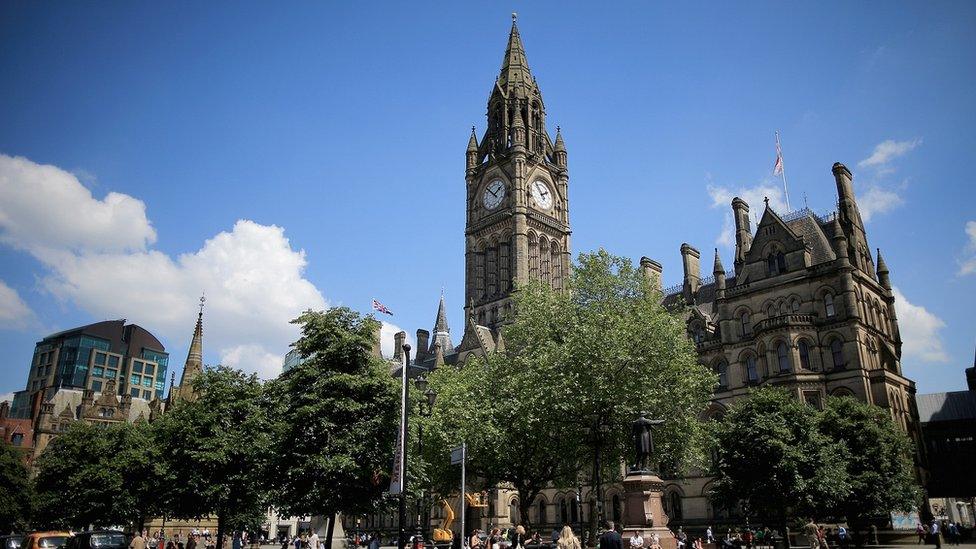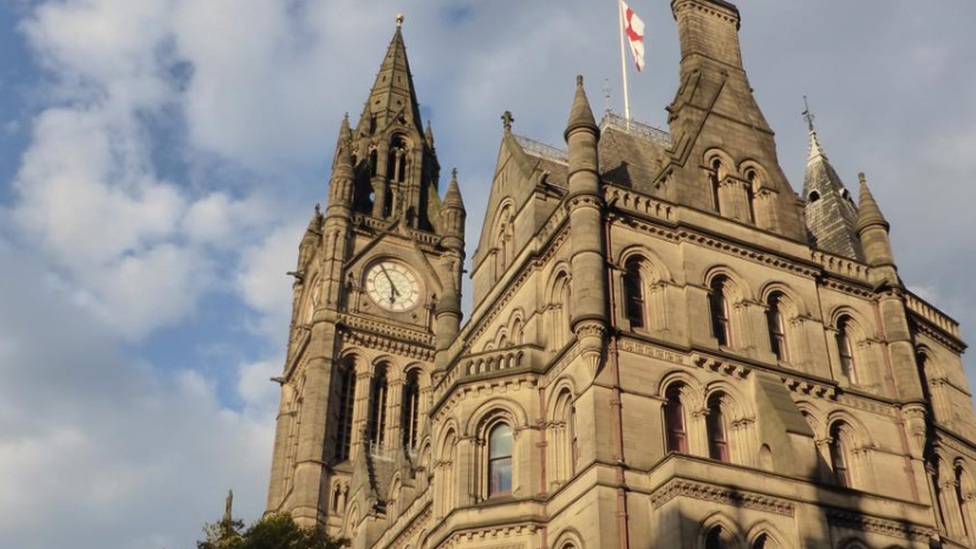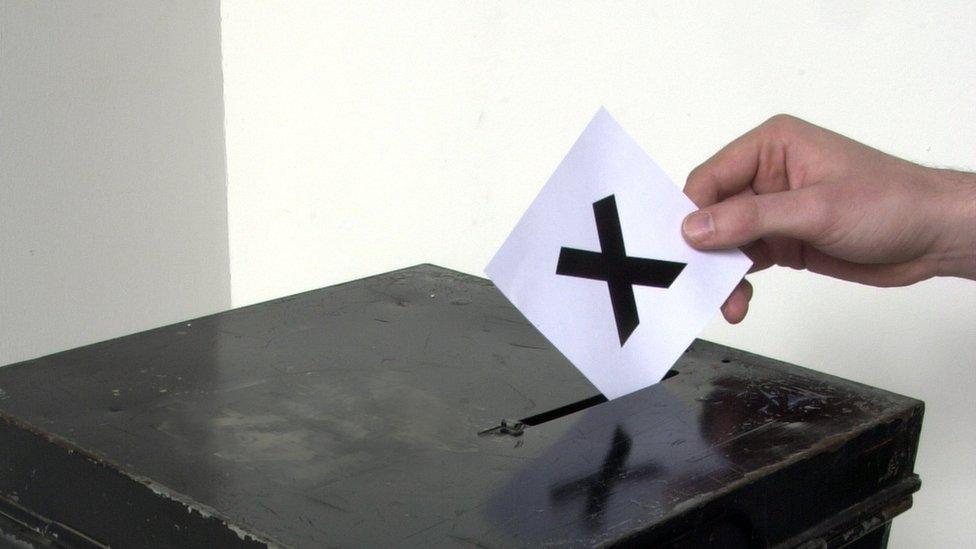Greater Manchester mayoral election: What powers will he or she have?
- Published

Plans for an elected mayor in charge of Greater Manchester's devolved powers were announced in 2014
"Make no mistake. This is the opportunity of a generation. I hope Mancunians see that."
George Osborne's eyes light up when I ask him about metro mayors.
"For too long Westminster has held all the power - that's about to change," said the former Chancellor, who remains MP for Tatton in Cheshire.
Mr Osborne is genuinely proud of Greater Manchester's devolution deal - the first of its kind outside London, and is arguably further reaching than the capital's.
The 10 leaders of Greater Manchester's borough councils are chuffed too.
While they never actually wanted an elected mayor, they reckon they've secured big enough prizes to not only accept a mayor but fully embrace its opportunities.
Unlike some other newly created mayoral regions, Greater Manchester has existed in some form since 1974 and that history has proved invaluable.
The deal has still been incremental and painstaking, however, taking more than four years to finalise.

Greater Manchester's Mayoral Election Candidates (listed in alphabetical order)
Sean Anstee - Conservative
Mohammad Aslam - Independent
Jane Brophy - Liberal Democrat
Andy Burnham - Labour
Marcus Farmer - Independent
Stephen Morris - English Democrats
Shneur Odze - UKIP
Will Patterson - Green Party
Find out more about the candidates - and their key manifesto commitments
Local authorities included in the mayoral region: Bolton, Bury, Manchester, Oldham, Rochdale, Salford, Stockport, Tameside, Trafford, and Wigan

Here's where we're up to.
The new mayor will become the head of policing as well as taking on ultimate responsibility for the fire and rescue service.
He or she will decide how to invest a £300m housing budget.
Along with the leaders of the 10 boroughs which make up the combined authority, the mayor will look after the training and skills budget, as well as the running of parts of the judicial system.
The mayor and combined authority will also design and control new housing and transport strategy for the entire conurbation.
Over the next 30 years they'll also have £900m to invest in commerce.
Not only that, but last year Greater Manchester became the first part of England to control its own integrated health and social care budget of £6bn.
But just because politicians like Mr Osborne say it's a big deal, does that filter down to the streets of Wigan or the hills of Oldham? From the housing estates of Salford to the parks of Trafford?
The simple answer is No - not really. Believe me, I've asked enough people.
'Things really are about to change'
There are 2.7 million votes up for grabs across Greater Manchester, but the expectations are that less than a third of the electorate will bother to vote in the election on 4 May.
Some MPs worry that's because outside of the shiny city centre, many feel left out, that devolution could suck the strength from the "satellite boroughs" into King Manchester.
"What happens if we replace one set of men sat in a room making decisions in Whitehall, for another set in Manchester Town Hall?" asks Wigan MP Lisa Nandy. "I don't think that's empowerment at all."
Talking to voters, there's also confusion about where the mayor in a fancy gold chain ends, and a Boris Johnson/Sadiq Khan London mayor type one begins.
"I don't see the point - I just can't be bothered with it all," one lady in Salford told me.
But bothered they should be.
It's very easy to fall back on the "it's just more politics" argument.
Unlike some other regions, this is an impressive deal that has been hard fought for, and forensically considered.
Things really are about to change - and people need to have their say.
- Published28 April 2017

- Published5 April 2017
